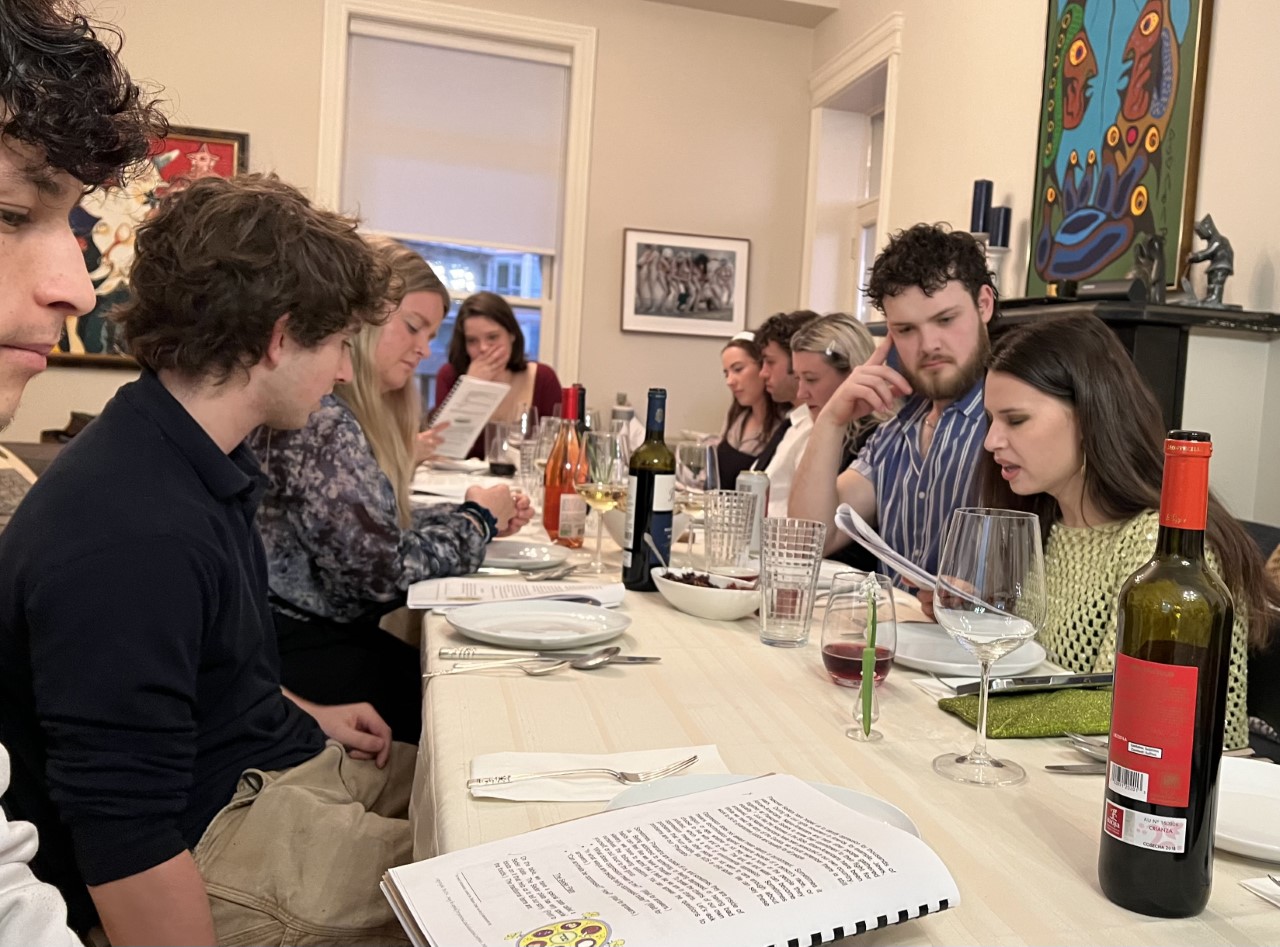Why was this Passover different from all other Passovers? We served halal meat and started the seder after sunset so our friends who were fasting for Ramadan could eat.
The friends, refugees from Afghanistan, moved to Toronto, where my family lives, almost a year ago: Vasila, a 24-year-old women’s right activist wanted by the Taliban for the crime of educating girls, and her 19-year-old brother Wasi, who their parents insisted she take with her for fear he’d have no choice but to join the Taliban if he stayed home.
My brother and sister-in-law, who were hosting, and who spent much of this year helping Vasila and Wasi find housing, doctors, and schools, didn’t know how they would fit any more guests around their already overcrowded table. But they’re the kind of people who believe that the whole point of a holiday is to find a way.
So they borrowed chairs from a neighbor, and we squished. I was glad to get to squish beside Wasi, a wiry guy with floppy black hair and a big necklace that said Allah in Arabic. I had become close to his sister, but I live in New York and had yet to meet him.
He was warm and friendly but jittery. I chalked this up to a nervousness that was understandable after all he’d been through: being evacuated from Afghanistan with his sister by a group called Vital Voices, spending months in a refugee camp, moving to a new country where he’s still struggling to learn the language, and now entering a room full of strangers to celebrate a Jewish holiday.
But he quickly set me straight, explaining that not only can’t you eat during Ramadan, you also can’t smoke, and the trouble was that he needed a cigarette. Did I mind if he dashed out?
“Go, go,” I said.
He came back calmed, just in time for my brother, Mitch, to stand up and say the blessing on the matzah. “Amen,” I said when the prayer was done.
“You say Amen?” Wasi asked, his whole body popping up with excitement. “We say Amin! It’s the same!”
“We have many similar words and prayers,” I said. “Your Shehada is just like our Shema, almost identical declarations that there is no God but our one God.”
“Really?” Wasi asked, intrigued.
“Not only are the words similar,” I said, “but we recite them at many of the same times in our day and lives. Like when we die, these are supposed to be the last words on our lips.”
“Us too!” Wasi cried, thrilled by the confirmation of something he seemed to have thought a lot about. “It’s the same for us!”
“The halal meat Deb bought for you tonight?” I went on, loving how much he was loving this. “You know what makes it halal? Pretty much all the same rules that make our meat kosher, except that an imam says the prayer instead of a rabbi.”
“Most people unfortunately took enemy with each other,” Wasi said. “But there can be peace. We are like cousins. Like brothers!”
He continued to speak passionately about religion, war, and peace, picking up his cell phone for help from a translation app. On his homepage, I noticed a picture of a turbaned mujahideen fighter.
“Ahmad Shah Massoud,” he explained. “You know him?”
I vaguely recalled this was the military commander Bin Laden killed two days before 9/11 but embarrassingly couldn’t remember much else. Wasi was surprised by my ignorance and excited to fill me in, telling me about Massoud’s fight against the Soviets and then the Taliban, whose fundamentalist view of Islam Massoud strongly opposed.
As Wasi continued to tell me about his hero’s achievements and teachings, I realized just how deeply it would have devastated a peace-loving guy like him to have had to join the Taliban. But had he stayed in his country, he might have had no choice. This might have been his only way of staying fed, of making some money, and possibly even of protecting his family from the crimes of his sister. His sister told me that one of their cousins was forced to join for these reasons, and this was why their parents were so eager to see Wasi get out.
My sister-in-law, Deb, makes bitter herb sandwiches she passes around the table. Wasi responds to the blessing on them with a resounding “Amen!” My niece starts to read the story of baby Moses in the bullrushes.
“Musa!” Wasi said. “We know Musa. We admire Musa. God talked to him.”
Around the table, my niece, nephew, and their friends continue to read the story of the exodus from Egypt. I listened, but realized that this year, I was not simply listening to the ancient tale so much as watching a new liberation take place before my eyes: the liberation of a young man who could have been indoctrinated to hate Jews, but who, instead, was sitting at our holiday table learning to celebrate with us.
“I love your crispy,” he said, reaching out for his third piece of matzah and popping it into his mouth with a resounding, “Amen!”
Lisa Wolfe is a journalist based in New York City.
